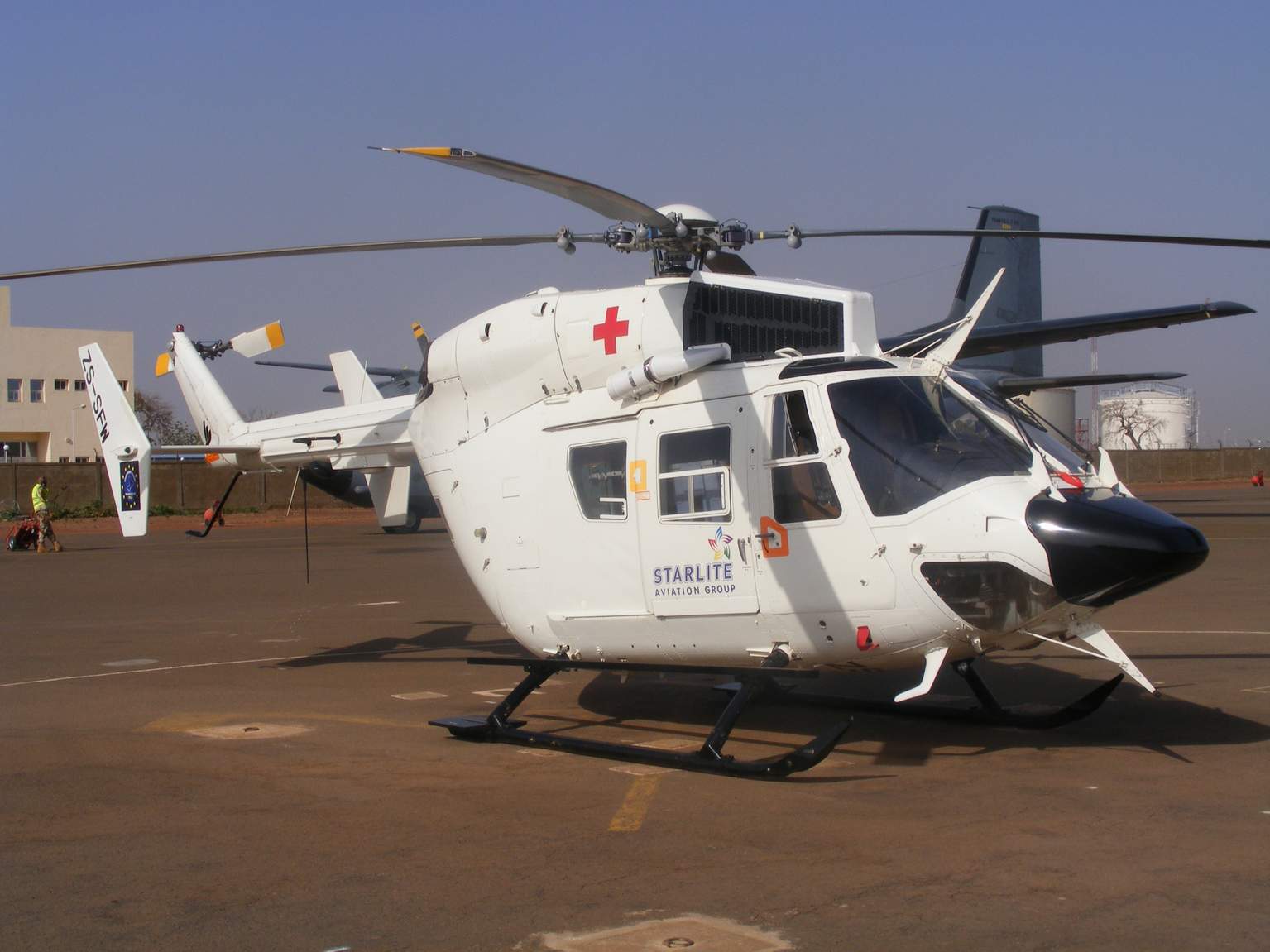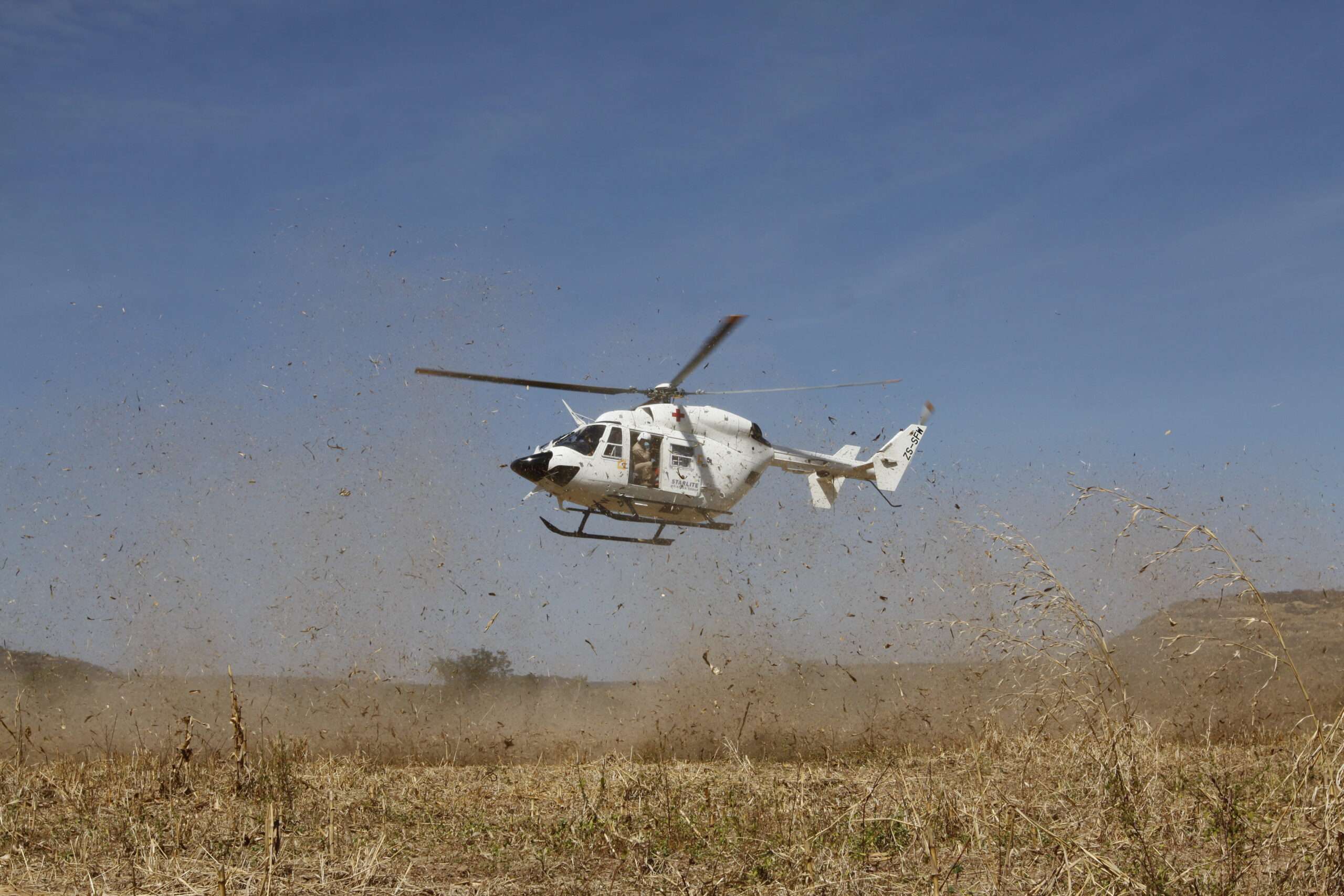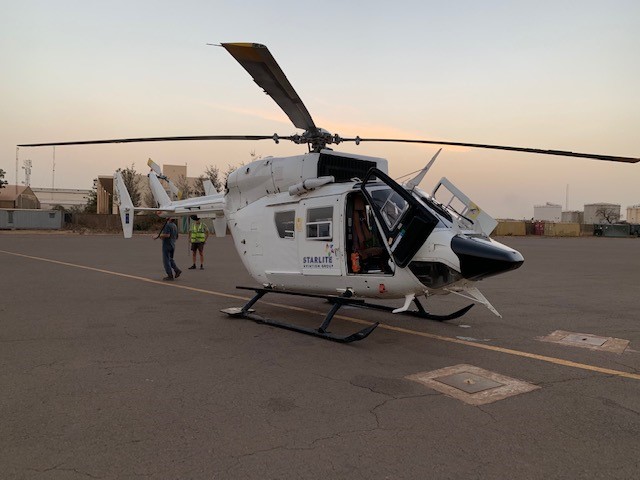7-9 passengers
1 - 2 pilots
133 kts
Speed
555.6 km
Range
1
Aircraft
2001
Year
The MBB/Kawasaki BK 117 is a twin-engined medium utility–transport helicopter. It was jointly developed and manufactured by Messerschmitt-Bölkow-Blohm (MBB) of Germany and Kawasaki of Japan. MBB was later purchased by Daimler-Benz and eventually became a part of Eurocopter, which was later rebranded as Airbus Helicopters.
On 25 February 1977, MBB and Kawasaki signed a cooperative agreement to abandon their independent efforts to design twin-engined general purpose helicopters in favour of a collaborative venture to development of a new rotorcraft for that role. While the programme’s costs were shared equally, the workshare was divided into certain areas of the design. MBB utilised their expertise with the rigid rotor system used on the earlier Bo 105 to develop the majority of the dynamic systems and flight controls, while Kawasaki focused on the airframe, structural elements, and various other components. On 13 June 1979, MBB’s flying prototype conducted its maiden flight at Ottobrunn, Bavaria, Germany; months later, it was followed by the Kawasaki prototype at Gifu, Chūbu region, Japan on 10 August 1979.
Each company established their own final assembly line, producing the BK 117 for their respective regions. The BK 117 has proven to be popular for passenger services and VIP-transport, the cabin can be outfitted with various seating configurations, seating between seven and ten passengers. It is also used for a diverse range of operations, such as aerial crane and sling work, law enforcement, and military transport, and is exceptional as an air ambulance and search and rescue platform. During the 1990s, due to its popularity, a refined derivative, initially marketed as the BK 117 C-2 before being rebranded as the EC 145 and later as the H145, was developed from the BK 117 C-1 version; this improved version of the rotorcraft has since succeeded the original BK 117 in production.



